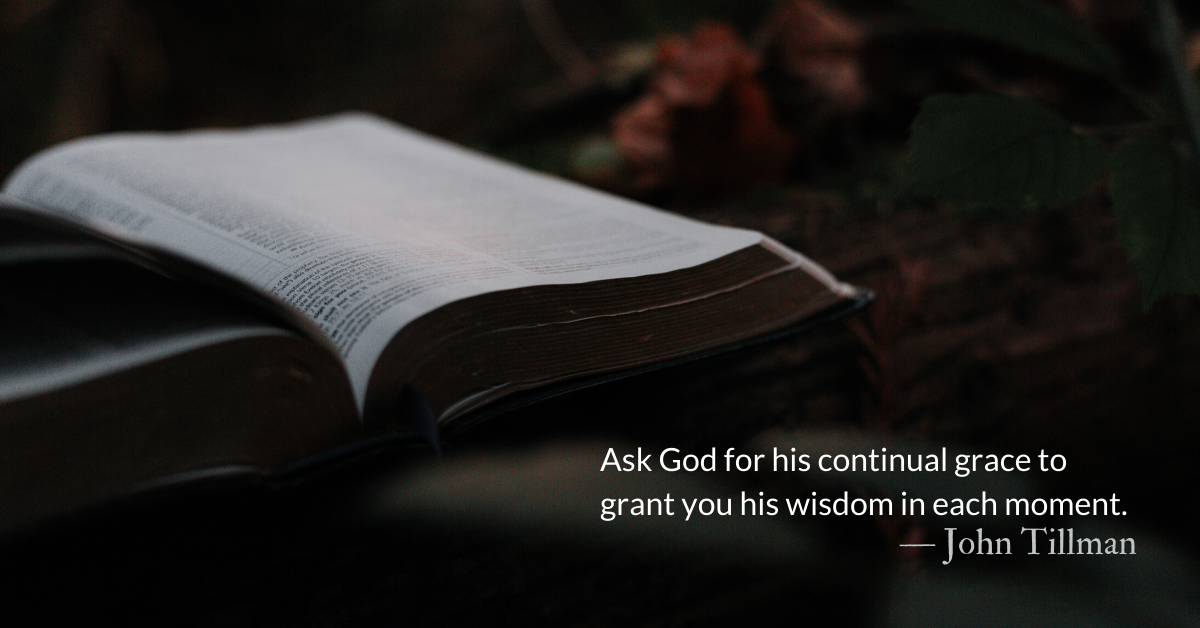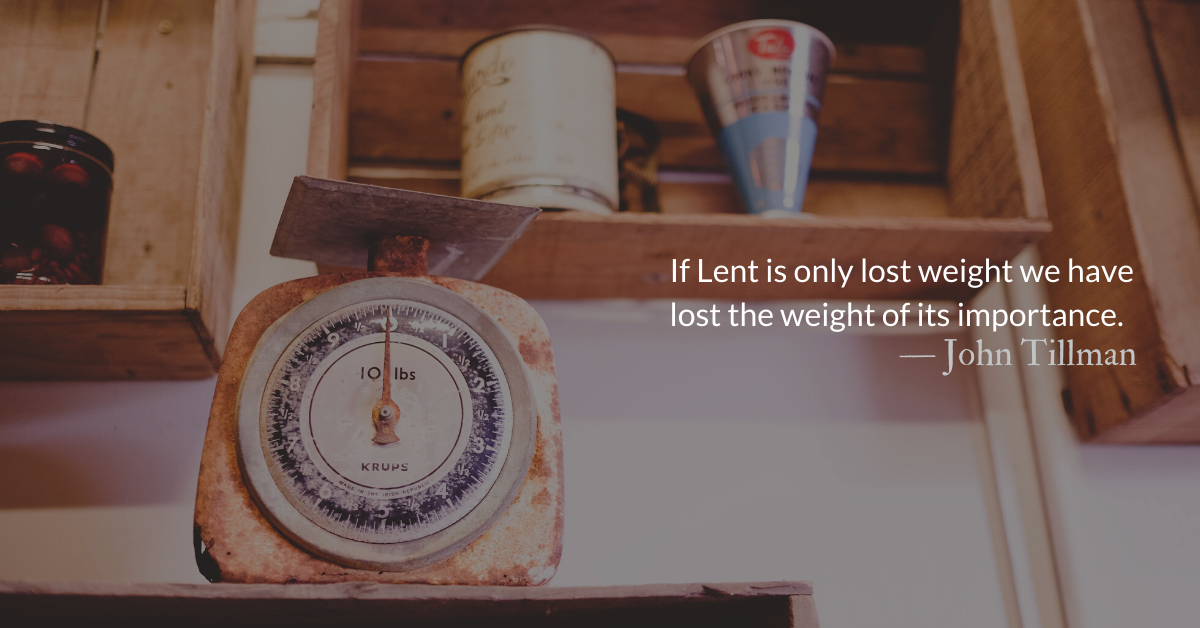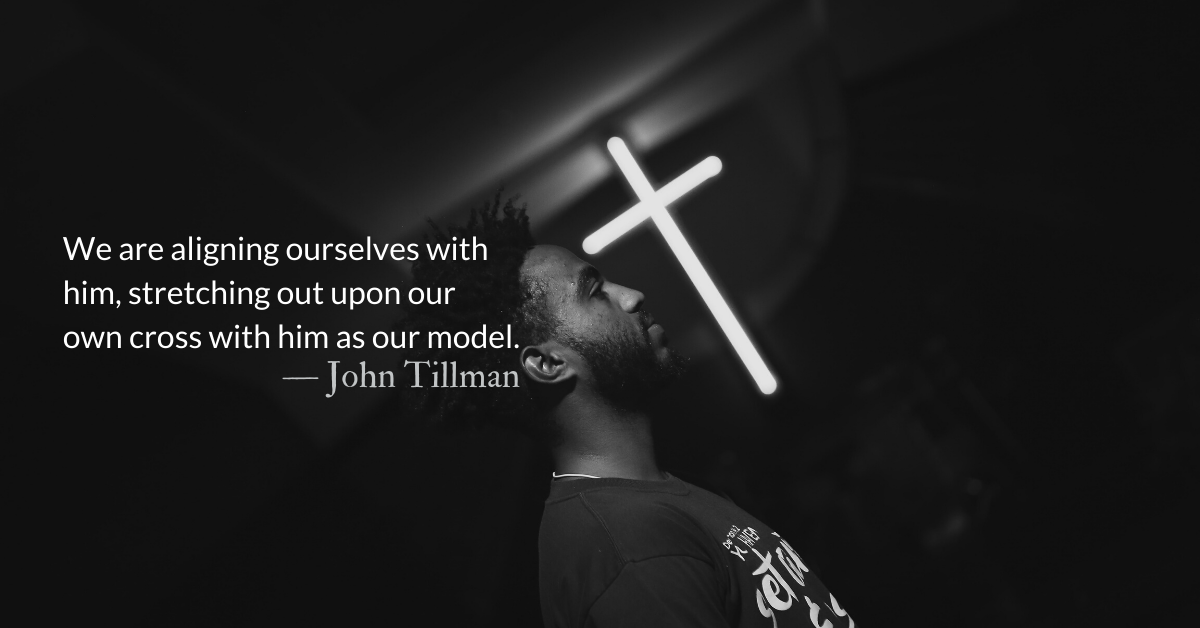Scripture Focus: Job 29.2-3, 12-17
“How I long for the months gone by,
for the days when God watched over me,
when his lamp shone on my head
and by his light I walked through darkness!…
…Whoever heard me spoke well of me,
and those who saw me commended me,
because I rescued the poor who cried for help,
and the fatherless who had none to assist them.
The one who was dying blessed me;
I made the widow’s heart sing.
I put on righteousness as my clothing;
justice was my robe and my turban.
I was eyes to the blind
and feet to the lame.
I was a father to the needy;
I took up the case of the stranger.
I broke the fangs of the wicked
and snatched the victims from their teeth.
Reflection: Righteousness Sets Things Right
By John Tillman
When we think of righteousness today, we tend to think first about achieving righteousness via elimination. We seek to avoid sin, to abstain from certain food and drink, to abjure the company of certain people, or to censor our experience of the world. These things may be wise measures for avoiding temptation but they are not marks of righteousness.
Limiting our exposure to certain things in order to remain righteous is a confession of our unrighteous state. Light does not avoid darkness to remain light—it pierces the darkness and the darkness cannot overwhelm it. Job acknowledges that the light of righteousness that used to be his was not his own, but came from the presence of God shining through him. Rather than focus on righteousness by omission, Job describes the righteousness of commission.
In Job’s example, righteousness is connected to and related to justice. The word sedeq, translated “righteous,” is often translated “just,” “justice,” “fairly,” and “rights,” it also is often paired with mispat, which is in this passage translated “justice,” but can mean “law,” or “judge.”
Righteousness, as Job describes it is marked by formidable, positive actions on behalf of justice. Righteousness sets things right. Job defines his righteousness by his use of power, wealth, and influence to benefit the weak, the marginalized, and the victimized.
When Job walked in, the powerful trembled. They recognized an enemy who would break their “fangs” which were their means of holding onto prey and exerting their poisonous control.
When Job walked in, those taking advantage of the poor would lose their control and investment. When Job walked in, abusers knew their time was up.
When Job walked in, the needy rejoiced. When Job walked in, the outcast celebrated. When Job walked in, the fatherless felt the power of a father on their side. When Job walked in widows knew that they would no longer suffer indignity or disregard.
When the church and Christians walk in righteousness, it will be the powerful who tremble at our approach. It will be oppressors who pray that we do not show up. It will be swindling money-lenders who dread us setting their debtors free.
Do you walk in righteousness? Ask yourself this question. Who gets nervous when you approach? Do the powerful pat you on the back? Or do the oppressed consider you a friend?
Righteousness isn’t righteous if it makes the wrong people nervous.
Divine Hours Prayer: The Refrain for the Morning Lessons
Keep watch over my life, for I am faithful; save your servant whose trust is in you. — Psalm 86.2
– Divine Hours prayers from The Divine Hours: Prayers for Springtime by Phyllis Tickle.
Today’s Readings
Job 29 (Listen -2:26)
1 Corinthians 15 (Listen -8:06)
This Weekend’s Readings
Job 30 (Listen -3:14)
1 Corinthians 16 (Listen -2:54)
Read more about Praise God for the Justice of the Gospel
We can and should be agents of justice to the best of our ability. But we also know that ultimate justice cannot be completed by this world’s systems.
Read more about Joy and Justice :: Joy of Advent
The justice we long for will come yet, as we wait, we represent the justice and righteousness of Christ on Earth.











